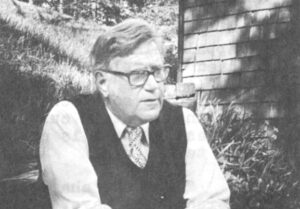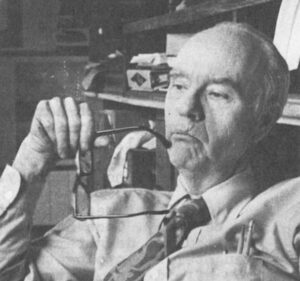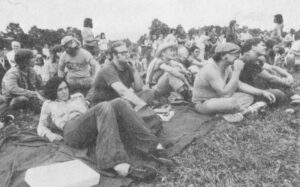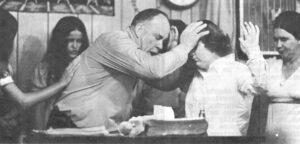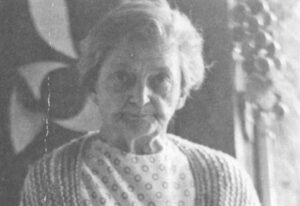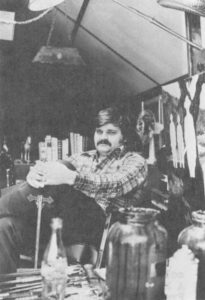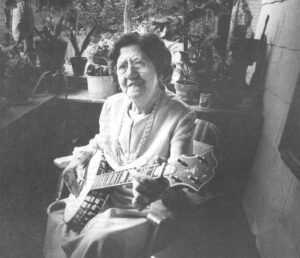The Cajuns of southern Louisiana and the mountain people of Appalachia know very little about their heritage. The fact that their histories, customs and traditions are locked away in the past has had a profound impact on the present status of their decaying cultures.
It’s ironic, to say the least, that these two American folk cultures, so full of rich heritage, could be nearly lost due to a basic failure of the older members of the cultures to relay heritage to the youngsters. But some sociologists believe this to be the case. The recent out-migration of the young from both cultures may be due in part to the fact that the young have lost their sense of belonging.
“Of course, economic considerations are perhaps most important in the loss of people from the Appalachian states,” one observer notes. “But the fact that young Appalachians have felt their region has no history, no positive attributes, has made it easier for mountain youngsters to leave.”
The same holds true in southern Louisiana where, even today, few Cajuns know the complete and accurate story of the expulsion by the British of the Acadians from Nova Scotia more than 200 years ago. The fact that few young Cajuns know or understand Cajun French indicates a breakdown in the parent-child ties, which have preserved the language and the culture.
Cajun youngsters are turning away from traditional music, calling it old fashioned. And they’re leaving the Catholic Church in growing numbers, apparently part of a national trend. But in Cajun country, where the church is an integral part of the culture, a loss of ecclesiastical influence also means the crumbling away of another cultural building block.
Gov. Edwin Edwards of Louisiana, himself a Cajun, said recently that he sees the breakdown of the church as the greatest threat to the Cajun culture. His assessment could be correct when one considers the social contacts between Cajuns, which are carried on at church functions plus the high status the church gives to strong family ties.
But the reasons behind the weakening of the culture in southern Louisiana seem to go much deeper. There is, for example, the age-old battle between “fathers and sons.” There is the myth of the greener pastures which lie just beyond the doorstep of one’s own homeland. There is the change in economic matters both in Louisiana and Appalachia, which has been so drastic, especially since the Depression. But all these considerations may be overshadowed by the simple fact that the old people in both cultures are not relaying the cultural message to the young.
An educational experiment, just beginning in both cultures, holds promise that the old balance may be restored to some degree. The teachers this time, however, are not the “old ones” in the culture. The teachers are found in the schools and the courses they teach are structured along traditional educational lines. But much of the subject matter is the same that young Cajuns and Appalachians once learned at home.
Generally, these courses are taught at the secondary level as electives. West Virginia seems to be slightly ahead of Louisiana in both the number and depth of such courses. Even so, both states have relatively new programs.
In West Virginia, all eighth grade students in public schools receive one year of West Virginia history. But, says a specialist with the West Virginia Department of Education, the emphasis in these classes is supposed to be on West Virginia as an Appalachian state. This means, he says, the teachers are “supposed to be teaching West Virginia history as part of Appalachia’s history, since the two are inseparable.”
This means that students are supposed to receive fairly large doses of Appalachian culture with their history course. However, this isn’t always the case.
“Even if teachers are native West Virginians, and even If their heritage is strictly Appalachian, they often find it difficult to teach the students about their own heritage,” the specialist said. “Perhaps it comes from the feeling of shame these teachers developed when they were young. Perhaps it’s rooted in the fact that until recently, they didn’t know they had a heritage.”
A look at old West Virginia history books shows that even a basic introduction to Appalachian culture was lacking. The books focused on industrial development, the economics of coal and agriculture and the ancient tribes of Indians that inhabited West Virginia prior to the coming of the white man. “We learned a whole lot about mound-building Indians,” says a former student, “but we didn’t learn a thing about the average white settler who built a log cabin and settled the wilderness.”
Today, a number of schools not only offer an Appalachian-oriented course in West Virginia history but an additional course in Appalachian culture, taught either as a social study or an English course.
Mrs. Madge Smith Skeens of Huntington (W. Va.) East High School teaches a course in Appalachian literature to upper level high school students. “We study Appalachian literature — stories and novels written both about and by Appalachian people. In the process, however, the students seem to learn a great deal about the people and customs of Appalachia as well as the region’s relationship to the rest of America,” she says.
Mrs. Skeens’ course of study is an elective and is always crowded. Each year, scores of students are turned away.
In Mason County, W. Va., Roger Samples, a young native West Virginian, teaches a course in Appalachian culture as a social study. The 10th and 11th grade students at Hannan High School are his pupils. The current school year is his first. He is developing the course of study as he goes along since the state school system has not developed such a course of study. He says he attempts to strike a happy medium between those topics the students seem to enjoy and those he feels are most important to understanding the culture.
“We made apple butter outside in the traditional way last fall,” Samples says. “Some of the older ladies from the community helped us. You’d be surprised how many of the kids had never seen apple butter made this way. And yet, up until 35 or 30 years ago, everyone made apple butter in the fall. It was a real social occasion. Whole families joined other families to make gallons of it. When that tradition was lost, a big piece of the culture was lost as well,” he noted.
Samples is not too optimistic about the future. “I’m trying to make up for 50 years of neglected cultural training in one semester. It requires more resources, I fear, than the board of education is willing to offer.” As for federal or state money, Samples admits that neither he nor anyone in the county school system has time nor expertise to apply for such funds.
The lack of cultural education in Cajun country has paralleled the story in Appalachia. Paul Tate, a Mamou, La. attorney, tells the story about his experience in high school.
“The Louisiana history book we used had about three pages devoted to Cajuns. Half of one page was a picture of some people standing beside a bayou. We were told they were Cajuns. The other two and one-half pages carefully explained how the Acadians were exiled from Nova Scotia because they refused to obey British law. Thus, the Cajuns were cast in the role of criminals.”
Even today, there are few courses in Cajun culture. One such course, however, is being taught as part of a larger folklore class at Crowley (La.) High School by Mrs. Margaret Leger.
Mrs. Leger explains that when she began teaching the folklore class about two years ago, the folklore being taught did not include any from Louisiana. It had little or no meaning to her students.
Today, Mrs. Leger teaches a course in Cajun culture along with a section on black folk culture of Louisiana as well as sections on other immigrants to the area, particularly Italians and Germans. She uses the “Foxfire” approach to teaching the culture. She sends her students out into the surrounding communities with pads and pencils and tape recorders. They collect folk tales, home remedies and stories about what it was like in the old days. From these collections, she and her students have produced a small paperback book along the lines of the famous “Foxfire.”
“It has not only been a great help to the young Cajuns and blacks in understanding themselves and their families, I think they understand each other better,” she says.
Perhaps the most interesting course at Crowley involves James Faulk and his six classes of Cajun French. The language is distinctively different from standard French and, in fact, is not a written language. Faulk has developed his own system of phonic symbols to teach the language. He is writing a Cajun grammar book, which would be the first of its kind if published.
“I started teaching Cajun French because one of my students in standard French complained he couldn’t talk to his Cajun grandmother, no matter how much standard French he learned,” Faulk says. The course is not necessarily for those going to college. It’s for the student who plans to stay in southern Louisiana and who needs to know the language to get along.
A number of eyes are focused on the Faulk experiment at Crowley. Many claim that since Cajun French is an illiterate language, it can’t be taught using traditional methods. If Faulk proves them wrong, it could mean an abandonment of the extensive standard French education program in Louisiana today.
No one is sure that any cultural awareness program will work. The idea of teaching heritage and pride in the classrooms of Appalachia and southern Louisiana is untested. Many claim the heritage and culture can only be taught in the home where the methods seemed to work quite adequately until a few years ago. The techniques used in the school, they say, are not nearly as subtle as those applied in the homes.
Yet, many believe it may be the only way to save the cultures, which were once perpetuating themselves, but now seem to have lost the will to survive.
Received in New York on March 12, 1976.
©1976 Dave Peyton
Dave Peyton is an Alicia Patterson Foundation award winner on leave from The Huntington Advertiser (West Virginia). This article may be published with credit to Mr. Peyton, The Huntington Advertiser, and the Alicia Patterson Foundation.

